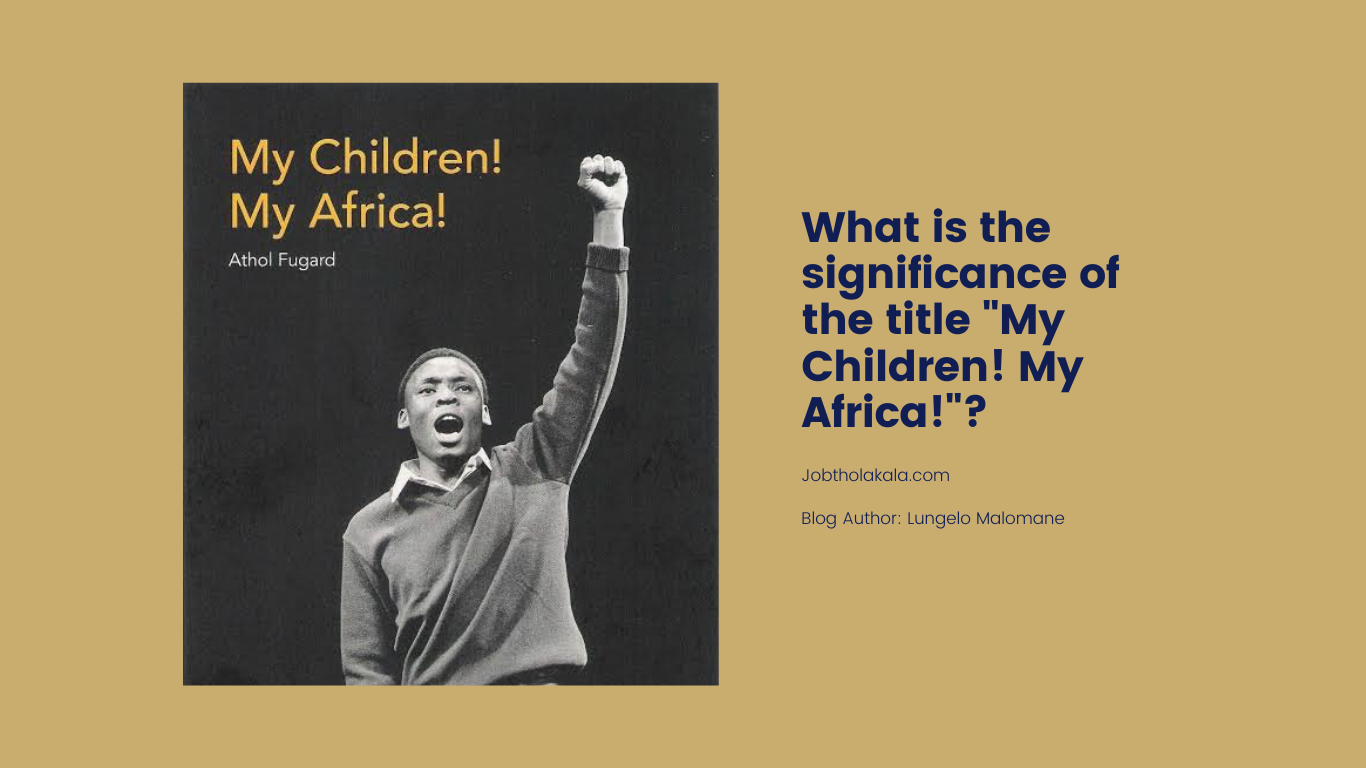 |
| My Children my Africa - What is the significance of the title "My Children! My Africa!"? |
The title "My Children! My Africa!" is significant because it expresses Mr. M's love for his students and his hope for the future of Africa. Mr. M sees his students as the future of Africa, and he wants them to have the opportunity to learn and grow so that they can make a difference in the world. He also wants them to be proud of their African heritage and to work to build a better future for their continent.
The title also reflects the play's themes of race, education, and the future of Africa. The play shows how apartheid divided people and prevented them from connecting with each other as human beings. However, it also shows how people can overcome these divisions and find common ground. Mr. M and Isabel, for example, are able to connect with each other despite their different races. They share a love of learning and a belief in the future of Africa.
The play also shows how education can be used to empower people and help them to achieve their dreams. Mr. M is a passionate believer in the power of education. He believes that education is the key to a better future for Africa. Isabel also comes to believe in the power of education. She vows to use her education to help build a better future for Africa.
The play also shows how education can be used to challenge the status quo. Mr. M uses his teaching to challenge the apartheid system. He teaches his students about the history of Africa and the importance of freedom. He also encourages them to think for themselves and to question authority.
The title "My Children! My Africa!" is a powerful statement of Mr. M's love for his students and his hope for the future of Africa. It is a reminder that education is the key to a better future for all people, and that we all have a responsibility to work to build a more just and equitable world.





No comments
Post a Comment